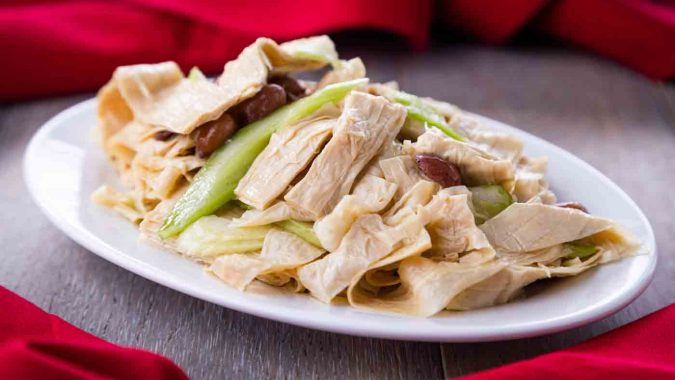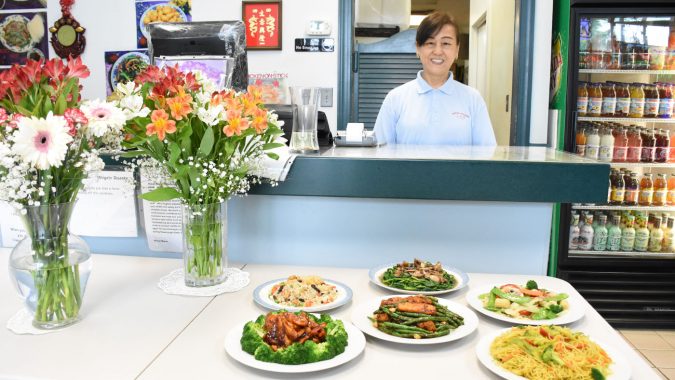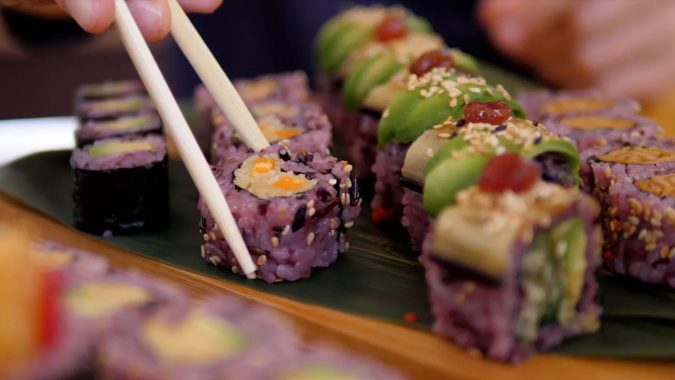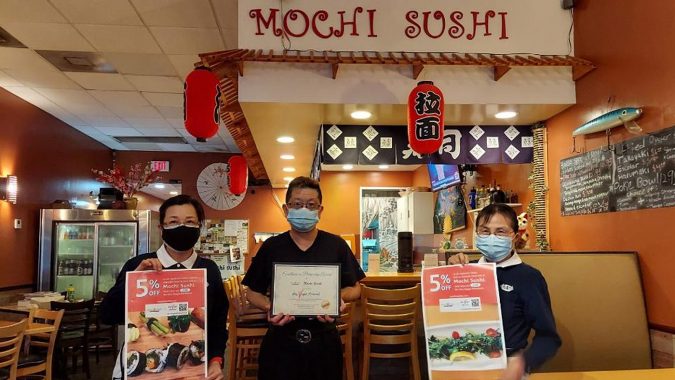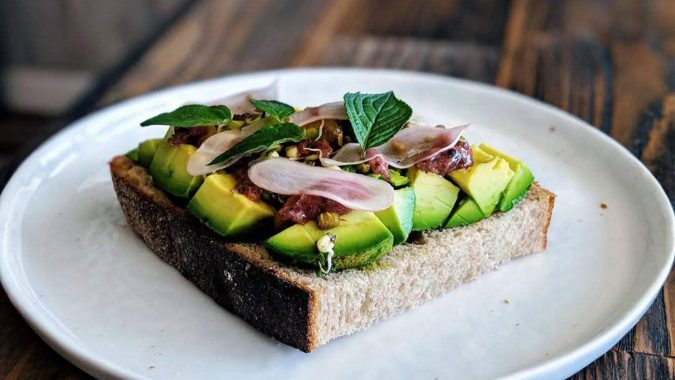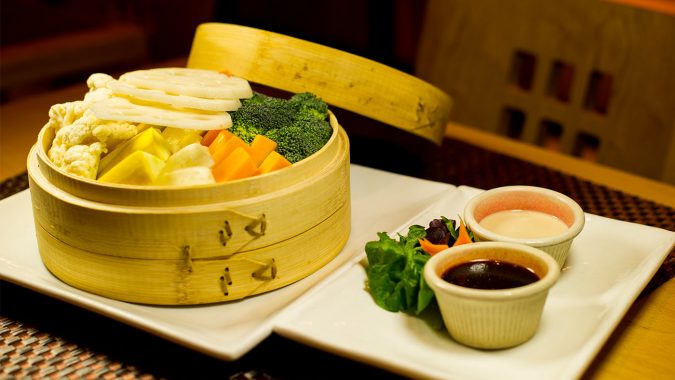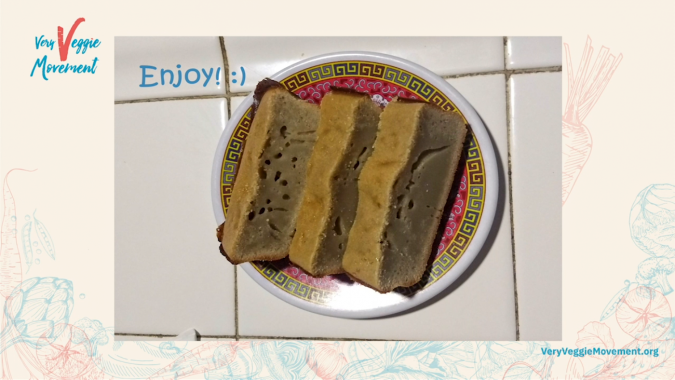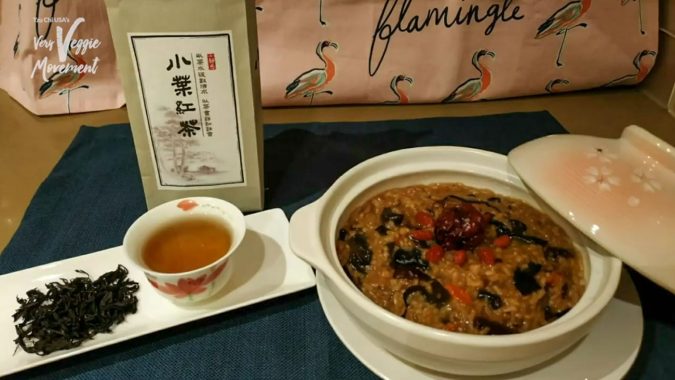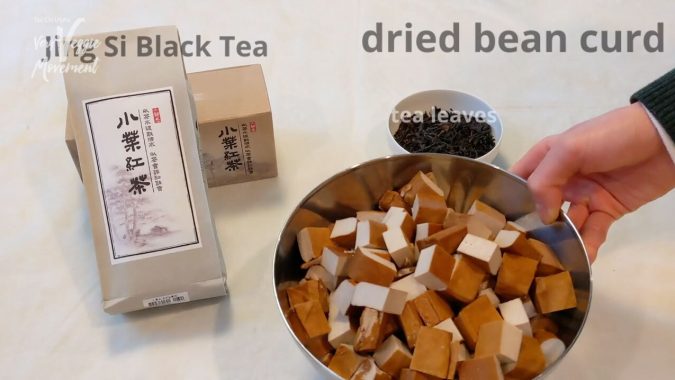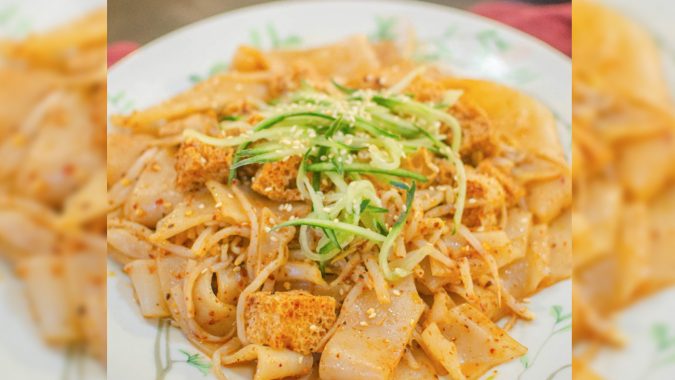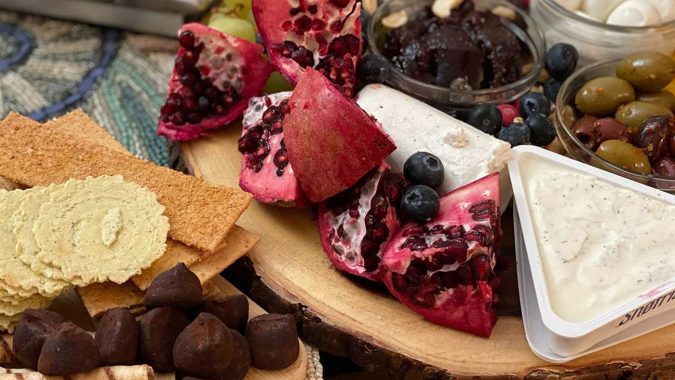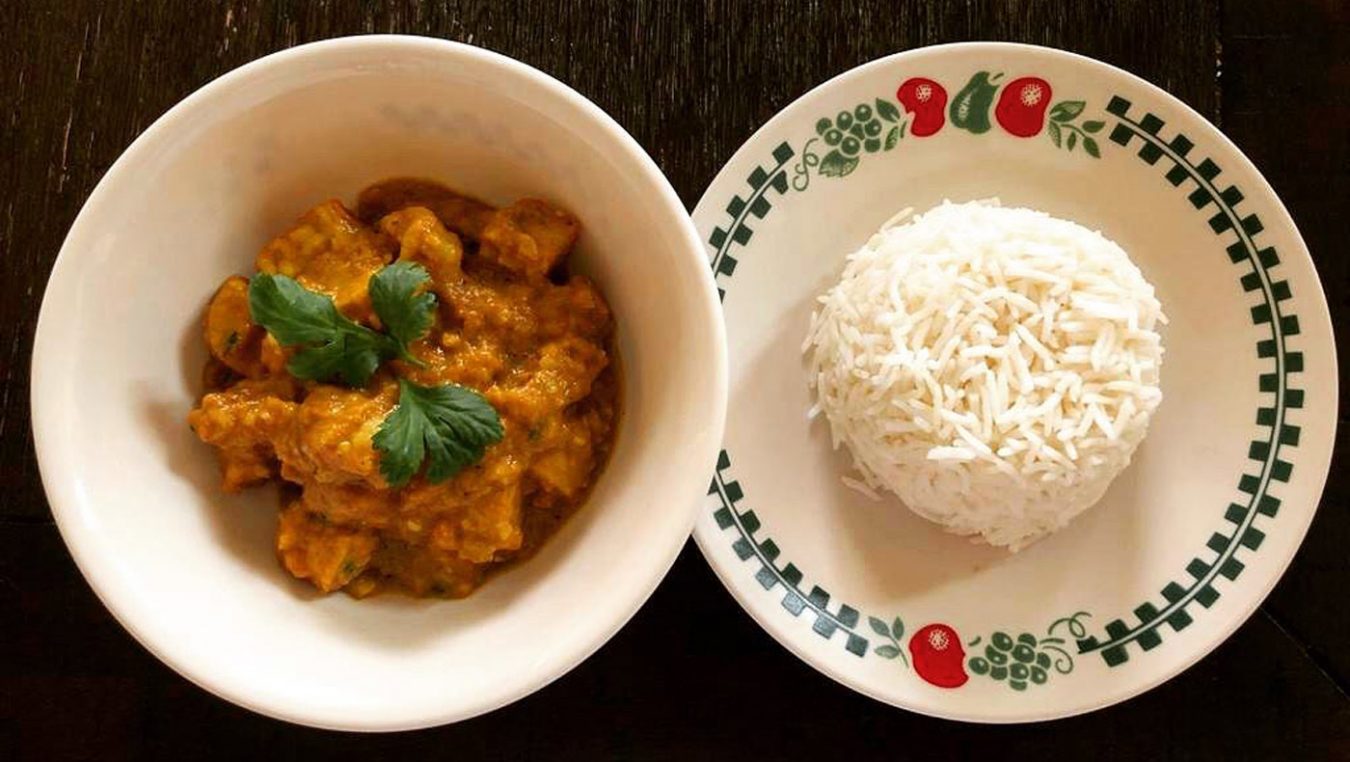
Written by Sophie X. Song
When Xenia Tombokan came to the U.S. for her studies in chemical engineering in the 1990s, she never thought she’d be homesick for tempeh from her native country, Indonesia. After all, this unassuming-looking soybean-based food was a boring old staple that the Indonesians ate every day because the meat was expensive to procure at the time. But in North Carolina and Wisconsin, where Xenia studied, tempeh was practically impossible to find, and even in Houston, where she settled for work eventually, what she could find was not very good, and Xenia found herself wishing she could find and cook quality tempeh for herself, and later on, for her husband and kids.
It turned out that this wish was shared by her parents, Santje and Winanti Tombokan, who currently reside in Germany, her husband Yuri Burhan, and her friend Yenny Malikasim. In 2019, this small group of entrepreneurial individuals came together – virtually, since they lived in three locales, with Yenny in California – and founded Wiwas Tempeh.
“Tempeh is often overlooked by even vegetarians, compared to, for example, tofu,” Xenia said. “No one really promotes it, but we wanted to change that.”
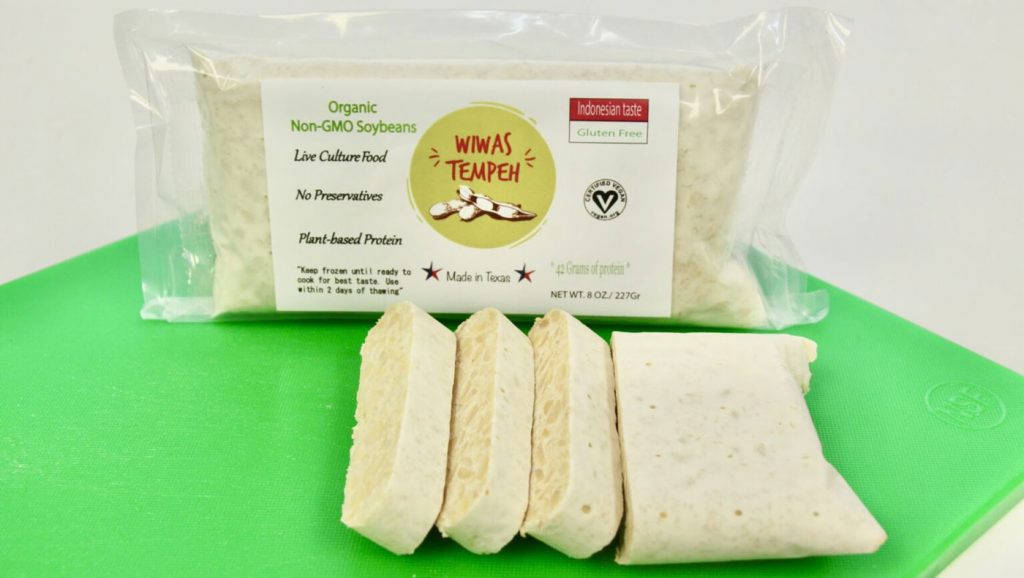
Even Better than Tofu
Though both tofu and tempeh are made using soybeans, tofu is made by grounding the beans while tempeh is made by keeping the beans intact. Instead, tempeh incorporates a fermentation process that adds vitamin B-12, a nutrient not present in fruit or vegetables, to the final product. In fact, most who adhere to a vegetarian or vegan diet choose to take vitamin B supplements for this very reason. If they eat more tempeh, Xenia said, they’d need to take fewer supplements. In addition, tempeh is an excellent source of protein and calcium, just like meat or poultry, without any of the additional calories, cholesterol, or saturated fat that come with those meat products.
The fermentation process also means that tempeh is a probiotic food. It contains bacteria that are beneficial to the human digestive system. It also produces a natural antibiotic that is shown to inhibit the growth of harmful bacteria in the body. Studies have shown that tempeh also guards against certain ailments, including the growth of some cancer cells, poor digestion, acne, osteoporosis, high cholesterol, and menopausal symptoms.
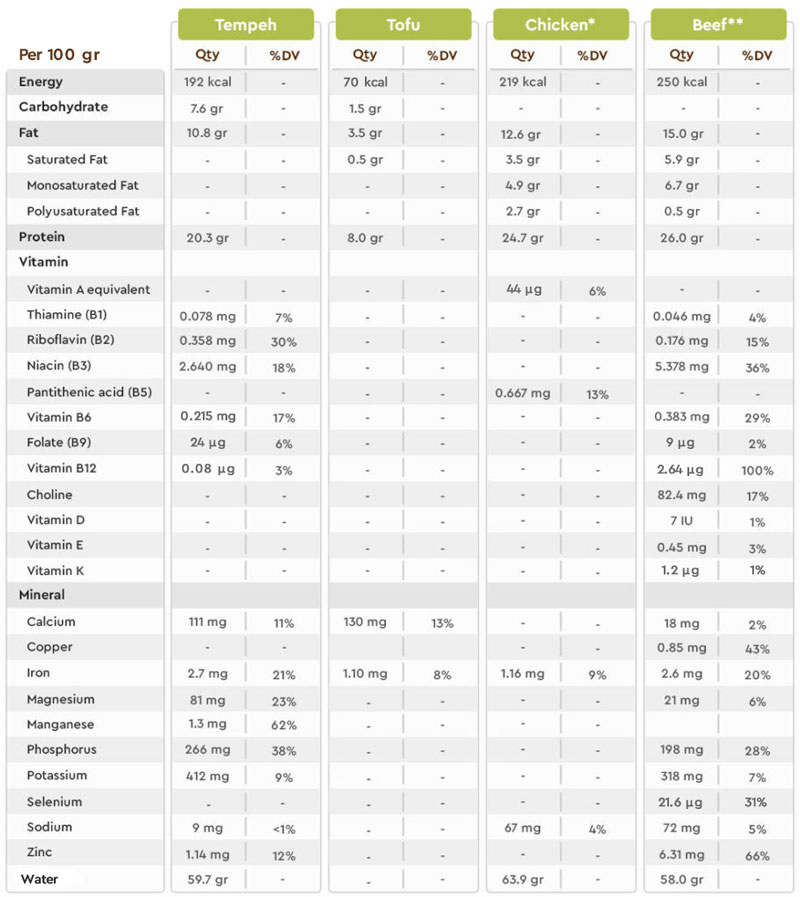
Tempeh at Its Best
There is perhaps another reason that tempeh has not yet found the popularity of tofu among vegetarians, despite its many health benefits: store-bought tempeh often has a peculiar taste. People try it once and turn away forever, Xenia said. Wiwas Tempeh solves that problem because their tempeh tastes fresh and wholesome.
At the Wiwas factory in Texas, only the best organic, non-GMO American soybeans are utilized, along with top-notch spores for the fermentation process. Once the bean patties are finished, following the 24-to-48-hour incubation period, they are quickly frozen to preserve the freshness. In this way, Xenia and her team can ship the best tempeh to be found in the United States to every corner of the country. Once defrosted and cooked, the tempeh tastes as if it has just been made on the spot. If you live in Texas, you can always look for Wiwas’ products in one of the more than 30 stores that currently stock them in Texas or dine out at one of the four restaurants that serve dishes made from them.
Getting the Word on Tempeh Out
Not long after Wiwas was founded, COVID-19 began to spread rapidly in the U.S., and lockdown began shortly after that. The business has been growing steadily despite this.
“It’s going well, but we don’t really have a comparison,” Xenia said. “Maybe without the pandemic we’d have taken off even faster!”
But the pandemic did mean that the usual channels of promotion – trade shows and food fairs – have not been an option for the young and thriving enterprise. Going forward, Xenia and her partners are planning to ramp up Wiwas’ presence on social media, connect with influencers in the vegetarian lifestyle space, and really get the products in front of customers who would be interested in tempeh, if only they knew about it at all. That is why Wiwas Tempeh has accepted the Very Veggie Movement’s invitation and is now offering a generous 20% discount on its tempeh for VVM members.
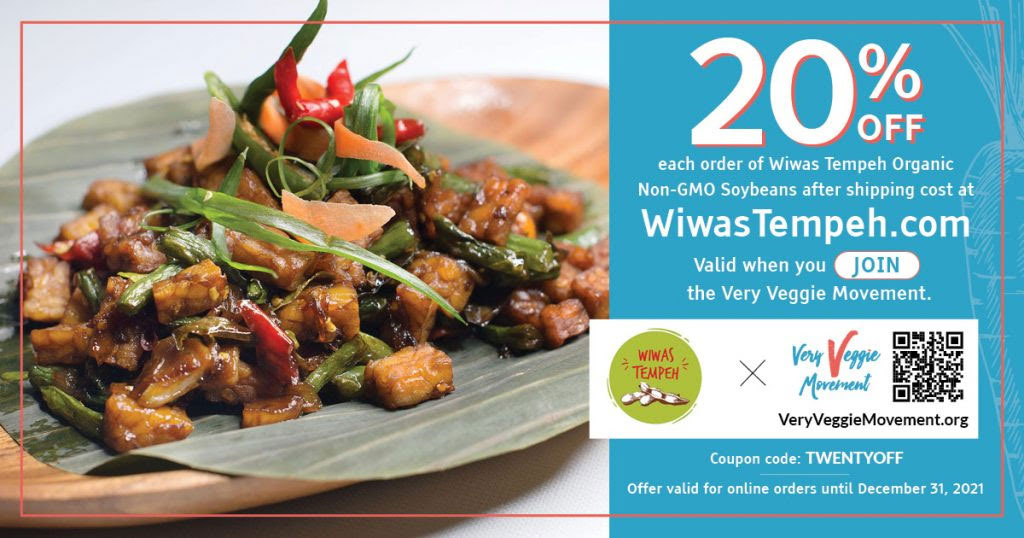
The team also plans to produce ready-to-eat meals using tempeh, so that you would be able to purchase a tray and dinner would be all set as soon as you get home and pop it into the microwave. That’s how easy cooking tempeh could be. Xenia is researching the best recipes for this because even though traditionally in Indonesian cooking, tempeh is simply fried and eaten with rice, it is very versatile and goes well with every kind of cuisine from around the world.
Xenia is the perfect person to do this, of course, because she loves making tempeh at home, too. Her kids, who were born in the U.S. and are more accustomed to American food, love having tempeh cooked in tomato sauce over pasta, while Xenia herself prefers Indian cuisine like a great curry, which incorporates tempeh with a ton of other nutritious vegetables.

“I feel less tired these days because of my diet, even though my days are fuller and busier as a business owner,” Xenia said. That is only one of the many benefits of a vegetarian or vegan diet, and it is the sort of benefit Xenia and her partners hope to bring to the masses one day, with their tempeh crafted with extraordinary care.





